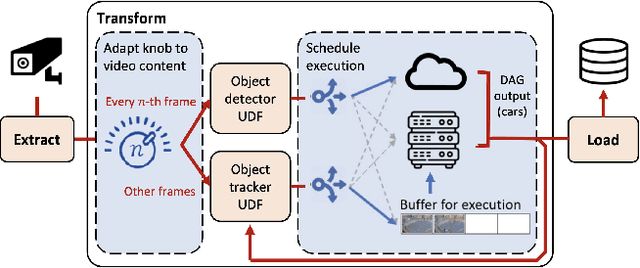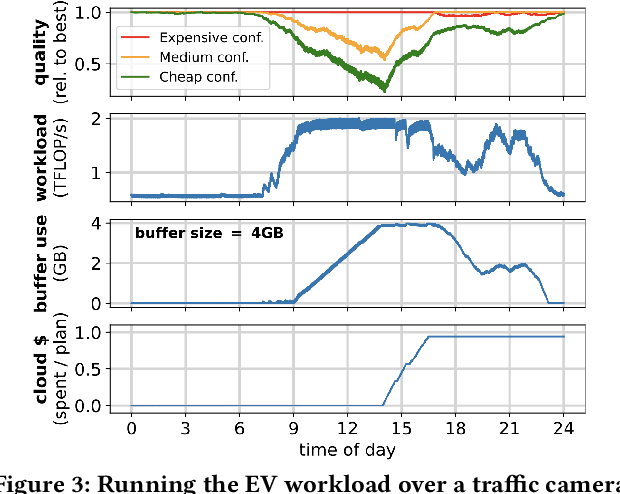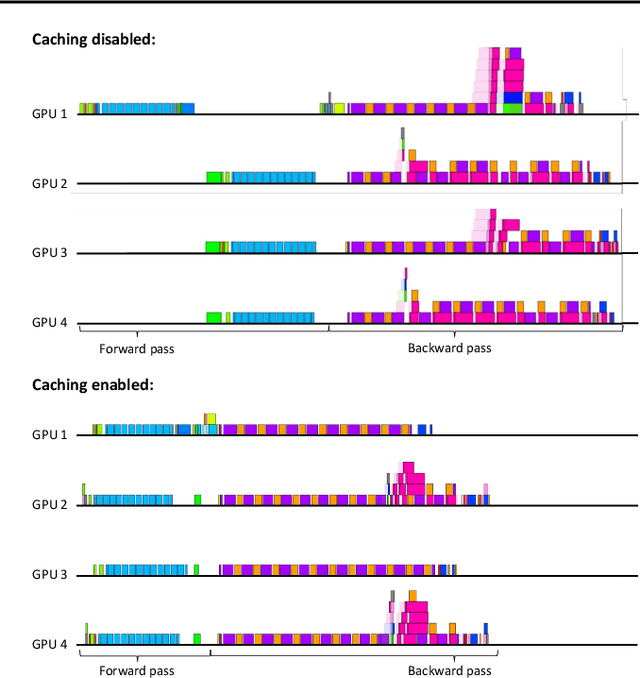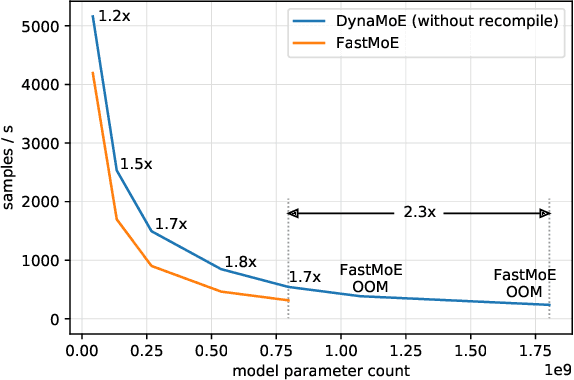Ferdinand Kossmann
Extract-Transform-Load for Video Streams
Oct 07, 2023



Abstract:Social media, self-driving cars, and traffic cameras produce video streams at large scales and cheap cost. However, storing and querying video at such scales is prohibitively expensive. We propose to treat large-scale video analytics as a data warehousing problem: Video is a format that is easy to produce but needs to be transformed into an application-specific format that is easy to query. Analogously, we define the problem of Video Extract-Transform-Load (V-ETL). V-ETL systems need to reduce the cost of running a user-defined V-ETL job while also giving throughput guarantees to keep up with the rate at which data is produced. We find that no current system sufficiently fulfills both needs and therefore propose Skyscraper, a system tailored to V-ETL. Skyscraper can execute arbitrary video ingestion pipelines and adaptively tunes them to reduce cost at minimal or no quality degradation, e.g., by adjusting sampling rates and resolutions to the ingested content. Skyscraper can hereby be provisioned with cheap on-premises compute and uses a combination of buffering and cloud bursting to deal with peaks in workload caused by expensive processing configurations. In our experiments, we find that Skyscraper significantly reduces the cost of V-ETL ingestion compared to adaptions of current SOTA systems, while at the same time giving robustness guarantees that these systems are lacking.
* 26 pages, 23 figures
Optimizing Mixture of Experts using Dynamic Recompilations
May 04, 2022



Abstract:The Mixture of Experts architecture allows for outrageously large neural networks by scaling model parameter size independently from computational demand (FLOPs). However, current DNN frameworks cannot effectively support the dynamic data flow in Mixture of Experts, and implementations on top of these frameworks need to use workarounds that introduce significant overheads. To address the limitation of these frameworks, we present DynaMoE, a DNN library that uses dynamic recompilations to optimize and adapt the use of computational resources to the dynamic needs of Mixture of Experts models. Our evaluation shows that DynaMoE achieves a 1.8x speedup and supports 2.3x larger model sizes when compared to existing MoE systems, even when not using recompilations. We then present further optimizations enabled by dynamic recompilations that yield an additional 1.7x speedup while simultaneously reducing memory pressure and improving model quality.
 Add to Chrome
Add to Chrome Add to Firefox
Add to Firefox Add to Edge
Add to Edge